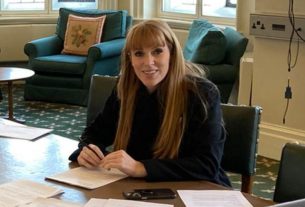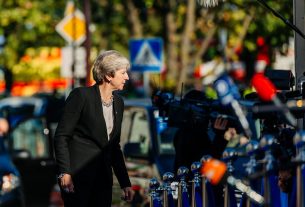Boris Johnson’s government is “is in breach of the rules of the House of Commons and the ministerial code” for failing to “correct the record” about repeated false claims made to parliament.
An investigation by the Independent and Full Fact found Johnson and his ministers have made “at least 27 false statements to parliament” since the 2019 general election which have not been corrected.
The news comes with fresh revelations about Rishi Sunak and his wife’s Akshata Murty non-domicile tax status with the chancellor admitting he held a US green card while serving as a member of the government.
Breach of ministerial code – a disregard for the truth
False claims by the PM and his ministers relate to the economy, lockdown parties, Covid boosters, crime rates and refugees. Seventeen claims made by Johnson have been “repeated several times, despite reprimands by fact-checkers and the statistics authority.”
Labour said the “litany of lies and falsehoods” shows the government’s disrespect for the public, a view echoed by former Conservative attorney general Dominic Grieve. He said the findings of the Independent’s investigation suggest “a disregard both for good governance and truth”.
Failure to “correct the record” about repeated false claims “is in breach of the rules of the House of Commons and the ministerial code,” said Full Fact.
A spokesperson for Number 10 said: “The government takes seriously its duties to ensure parliamentary accountability and scrutiny by an independent free press.”
Home secretary Priti Patel, attorney general Suella Braverman, culture secretary Nadine Dorries and former health secretary Matt Hancock have all been found to have made false statements since the 2019 general election.
Before Johnson took over in No 10, convention expected ministers to resign if they were found to have breached the ministerial code. Patel was found to have broken the code over bullying by an official parliamentary inquiry in 2020. However, Johnson ignored the findings and it was the head of the inquiry, Sir Alex Allan, who resigned his position in protest, rather than the home secretary Patel.
Crisis of honesty
Full Fact’s chief executive Will Moy said there is a “crisis of honesty” in politics that is damaging public trust. “People who are being dishonest are not being held to account,” said Moy.
“We’re seeing senior government ministers and the prime minister repeating claims that are not true and that they have had every chance to get right, up to and including their own regulator of statistics telling them what they’re saying is not true.
“That is both new and shocking.”
Moy said that while “it is only human” for MPs to make mistakes in the cut and thrust of parliamentary exchanges, the mistakes must be corrected.
Only ministers can correct the official Hansard record of debates but the current system does not compel them to do so. Other strict rules stipulate that parliamentarians cannot accuse each other of lying. Ian Blackford, leader of the SNP at Westminster, was recently ejected from the Commons by Speaker Sir Lyndsay Hoyle for calling Johnson a liar during PMQs.
“It is ridiculous that you have a system where the speaker can throw an MP out of the House of Commons for accusing somebody of lying, but an MP who is lying cannot be sanctioned in any way,” said Moy.
He added that “a ban on name calling is a good idea” but having a ban on accountability is not. “At the moment we have a ban on both and that’s not working for anyone.”
More than 6,000 people have already signed yet another petition to demand accountability for politicians who mislead parliament. It was launched yesterday (April 8).




